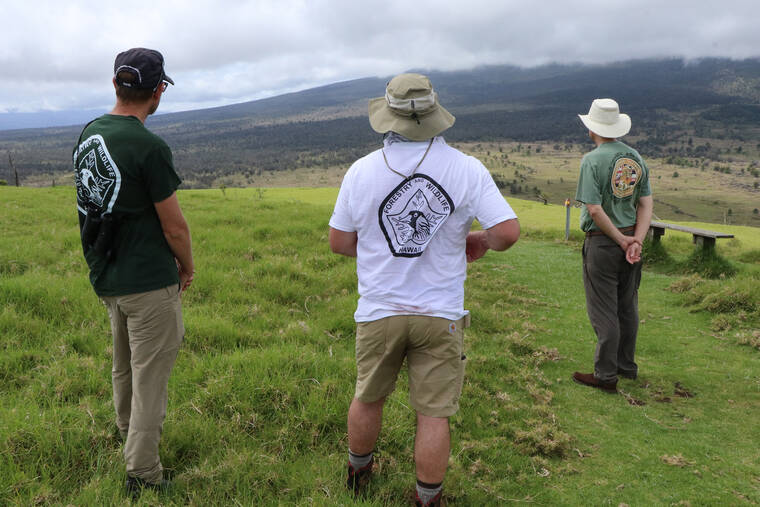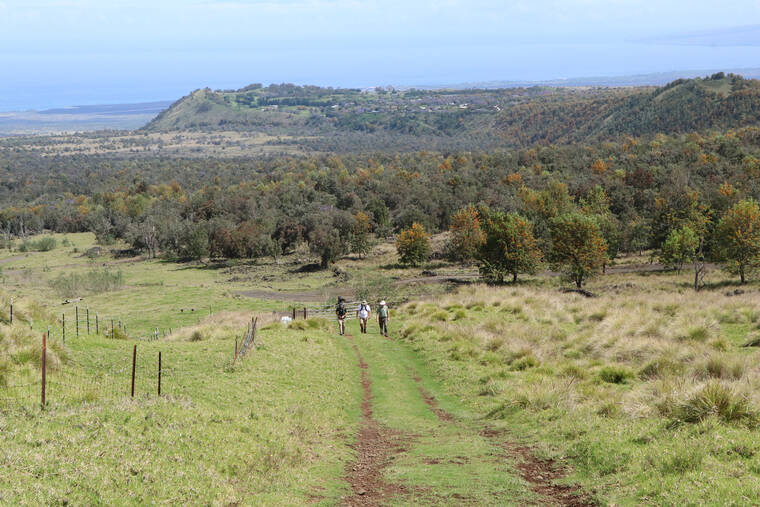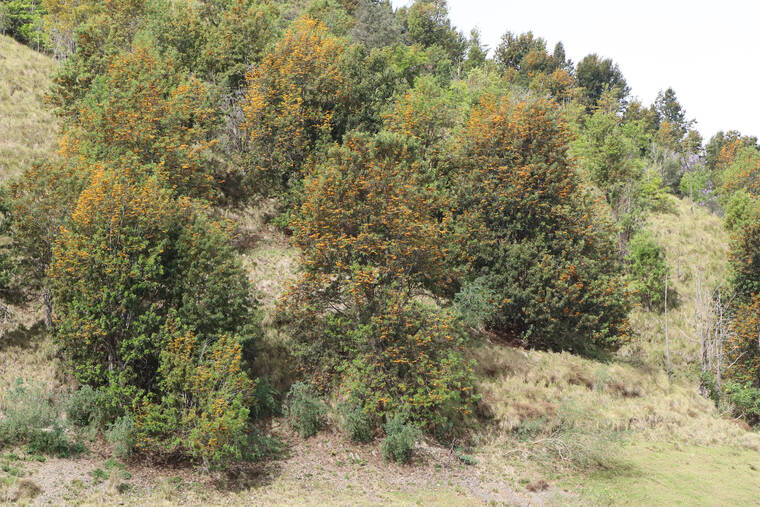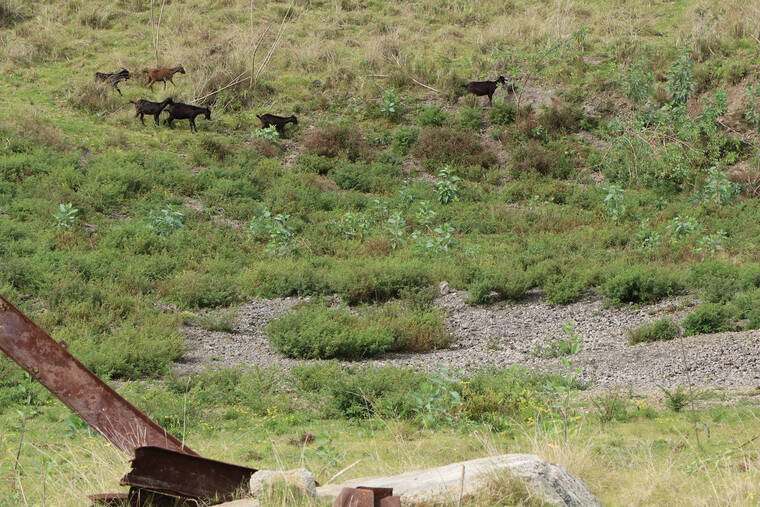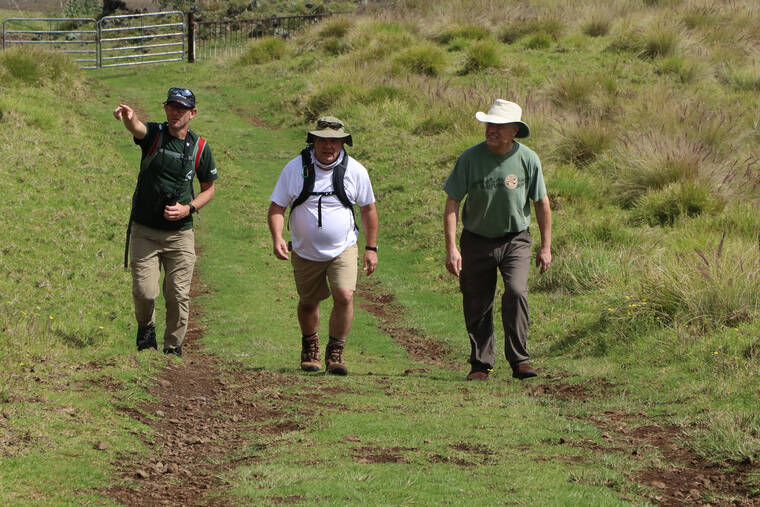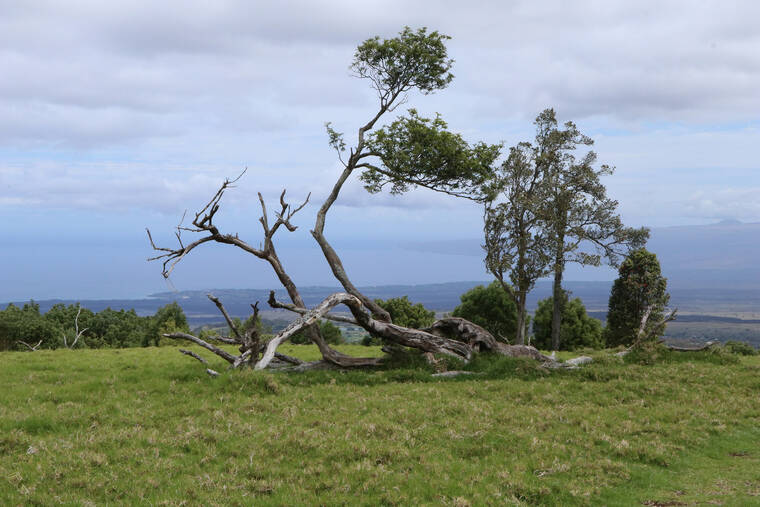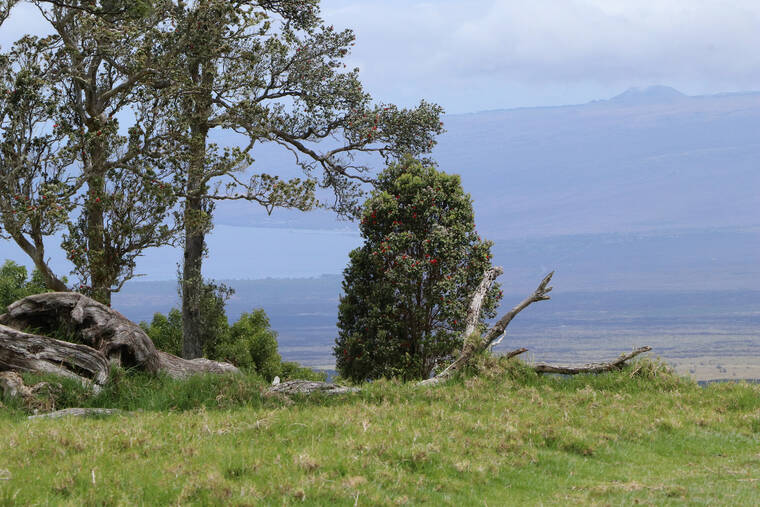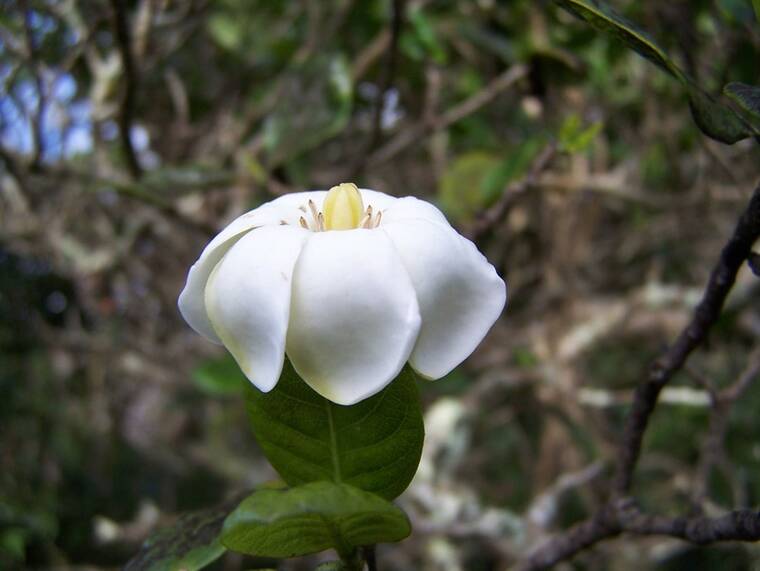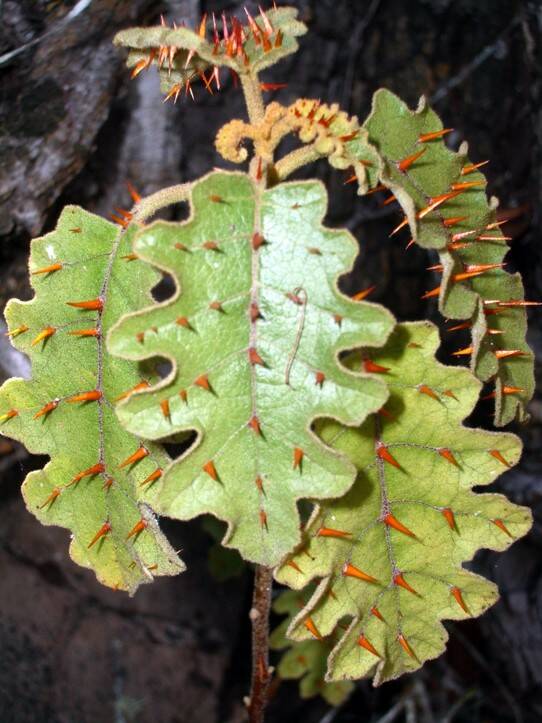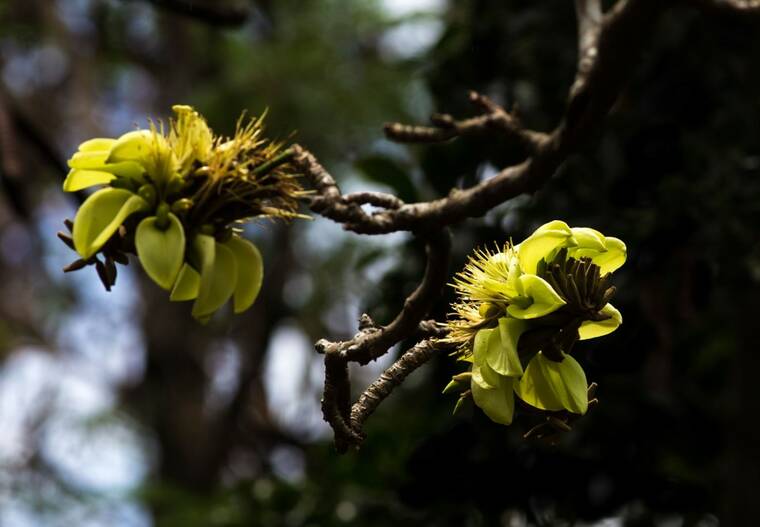State receives $1.28M in federal funding to mitigate wildfire, ungulate threats
Forests in the Pu‘uwa‘awa‘a vicinity are about to receive additional protections from threats like wildfires and hoofed animals thanks to a new award from the National Fish and Wildlife Foundation funded with support from the U.S. Army and Fish and Wildlife Service.
The foundation has awarded more than $1.28 million to the state Department of Land and Natural Resources to address threats at the North Kona site as well as in the Waianae mountains on Oahu using proven tools such as fencing, habitat restoration, removing hoofed animals, and firebreak creation.
Keeping these high-risk landscapes protected from fire greatly increases resilience to floods and erosion, according to the state. When landscapes are forested, they hold soil and can quickly absorb rainfall, which significantly reduces flooding. Wildfires worsen flooding risk by degrading or destroying forests and/or changing the soil to make it less absorbent.
In the span of a decade, over 200 fires have occurred within a three-mile radius of the project areas. Fires also threaten the high concentrations of endangered plants in these areas.
“The areas targeted have some of the highest populations of rare dryland forest plants remaining. We are very grateful for this partnership to restore these species, as well as protect life, property, and our ecosystems from fire,” said David Smith, administrator of the DLNR Division of Forestry and Wildlife.
A remote section of the Pu‘u Anahulu Game Management Area will get further protection from a 350-acre fence to exclude hoofed animals. The project will include gates to provide continued access. Funds will also support the planting of native species and weed removal. Invasive plants crowd out the habitat for native vegetation, including seven endangered plant species, some with less than 50 individuals remaining in the wild.
By improving the health of these forests, the state said the project will result in increased carbon sequestration and freshwater supplies, clearer ocean waters, and perpetuation of these plants and landscapes as culturally important resources.
“This project is a result of coordinated planning between the Army and neighboring private landowners, non-profit organizations, and State and Federal agencies,” said Kapua Kawelo, Natural Resource Manager for the U.S. Army Garrison – Hawaii. “The State, Kamananui Ranch, and Kaala Ranch will be contributing funding and in-kind support to keep wild fires from climbing up the mountain and damaging our rare dryland forest plants.”

